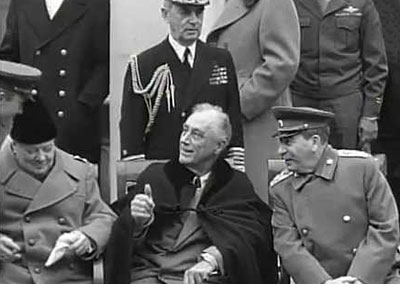Anticipated Course Rotation
List of Elective Courses
Descriptions of Required Core Courses
Rhetorical Leadership students must take Communication 772, and either Communication 762 or Communication 872, and three additional electives or approved courses.
Commun 772 – Rhetorical Leadership and Ethics
 This course is designed to explore rhetorical perspectives and practices of leadership, critical followership, and ethics. By the course’s end, students should be able to: 1) understand, analyze, and evaluate rhetoric’s potential relationships to experiences and practices of contemporary leadership and 2) demonstrate fluency with a range of rhetorical choices for effectively critiquing and exercising ethical rhetorical leadership. The major project for the semester is an actual case of the student’s choice in which the student analyzes the rhetorical leadership problems that the case presents, proposes and justifies multiple rhetorical solutions, and makes a reasoned recommendation. Commun 772 Sample Syllabus
This course is designed to explore rhetorical perspectives and practices of leadership, critical followership, and ethics. By the course’s end, students should be able to: 1) understand, analyze, and evaluate rhetoric’s potential relationships to experiences and practices of contemporary leadership and 2) demonstrate fluency with a range of rhetorical choices for effectively critiquing and exercising ethical rhetorical leadership. The major project for the semester is an actual case of the student’s choice in which the student analyzes the rhetorical leadership problems that the case presents, proposes and justifies multiple rhetorical solutions, and makes a reasoned recommendation. Commun 772 Sample Syllabus
Commun 762 – Argumentation in Theory and Practice
 Argumentation, the exchange of reasons in order to influence others or discovery knowledge, is a pervasive feature of public and private life. We all engage in argumentation, and we all depend on it. However, many people are dissatisfied with the quality of public argumentation in the United States today.
Argumentation, the exchange of reasons in order to influence others or discovery knowledge, is a pervasive feature of public and private life. We all engage in argumentation, and we all depend on it. However, many people are dissatisfied with the quality of public argumentation in the United States today.
In this course, students will trace a public controversy to consider argument in both theory and practice. Unlike a usual graduate level seminar in argumentation, this course integrates a performance and advocacy component with its study of argument theories. Assignments will require students to engage in and practice argumentation to test the practical value and limits of those theories. The course does not assume any prior knowledge of argumentation theory or practice. Commun 762 Sample Syllabus
Commun 872 – Rhetorics of Constituting Community and Social Controversy
 “Community” and “controversy” are held in peculiar regard by our society. We often value and seek out community and disdain and avoid controversy. Our culture frequently assumes that community and controversy are antithetical, that is, that community and controversy work antagonistically to dispel each other. If there is community, then controversy threatens to dissolve it. By the same token, if there is a controversy, we often hear claims that it will be resolved once we find common ground. These maxims are helpful, but perhaps not wholly accurate. We might instead suggest reasons to see community and controversy as mutually and complexly entwined, symbiotic rather than opposing forces. In this view, the greatest test of community is not how it operates during times of harmony, but how it emerges in and engages controversy and subsequently is redefined. Conversely, controversy can be examined for its ability to promote and redefine, not just challenge and destroy community. Our primary lens for critically viewing the phenomena of community and controversy will be rhetoric, which draws our attention to how communities and controversies are defined, contested, advocated, and made sensible to people via symbolic arrangements. We will develop and practice with rhetorical tools for analyzing communities and controversies, ultimately using these tools in our own investigations and analyses of a community/controversy phenomenon. By the end of a semester, students should be able to discuss eloquently the stakes of and options for community and controversy in our contemporary society, with each student evidencing his or her claims in a specific case project developed over the course of the semester. Commun 872 Sample Syllabus
“Community” and “controversy” are held in peculiar regard by our society. We often value and seek out community and disdain and avoid controversy. Our culture frequently assumes that community and controversy are antithetical, that is, that community and controversy work antagonistically to dispel each other. If there is community, then controversy threatens to dissolve it. By the same token, if there is a controversy, we often hear claims that it will be resolved once we find common ground. These maxims are helpful, but perhaps not wholly accurate. We might instead suggest reasons to see community and controversy as mutually and complexly entwined, symbiotic rather than opposing forces. In this view, the greatest test of community is not how it operates during times of harmony, but how it emerges in and engages controversy and subsequently is redefined. Conversely, controversy can be examined for its ability to promote and redefine, not just challenge and destroy community. Our primary lens for critically viewing the phenomena of community and controversy will be rhetoric, which draws our attention to how communities and controversies are defined, contested, advocated, and made sensible to people via symbolic arrangements. We will develop and practice with rhetorical tools for analyzing communities and controversies, ultimately using these tools in our own investigations and analyses of a community/controversy phenomenon. By the end of a semester, students should be able to discuss eloquently the stakes of and options for community and controversy in our contemporary society, with each student evidencing his or her claims in a specific case project developed over the course of the semester. Commun 872 Sample Syllabus